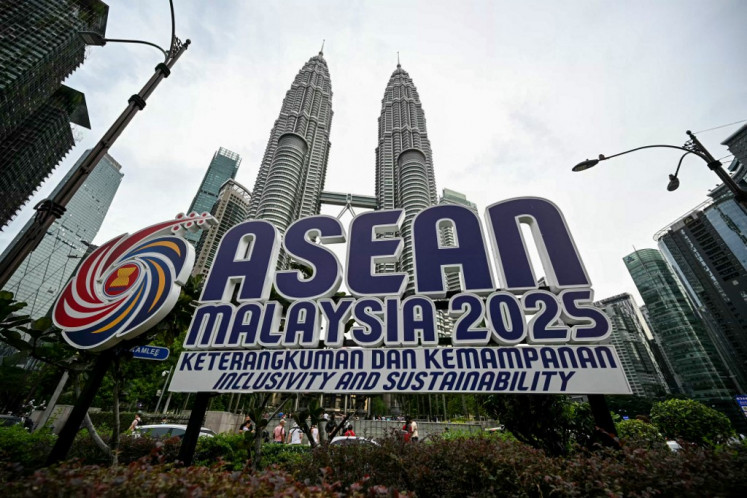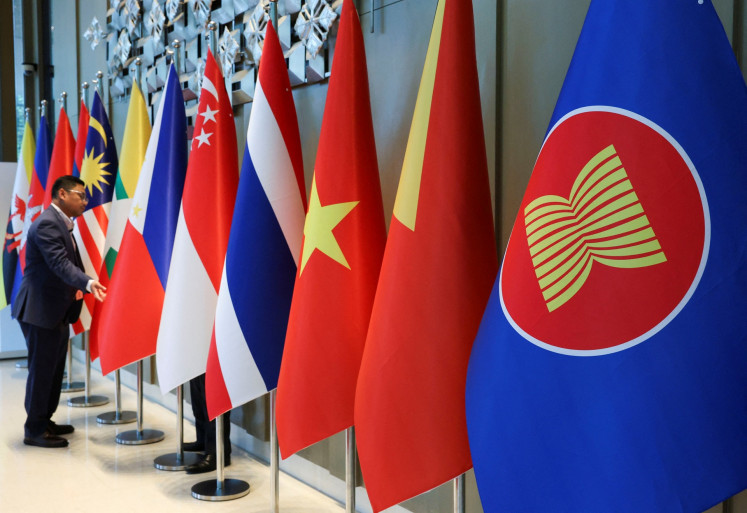RMB's SDR inclusion impacts global financial order
In the beginning, it was a touristâs currency
Change text size
Gift Premium Articles
to Anyone

I
n the beginning, it was a tourist's currency. Then, traders and bankers began using it. Now, the renminbi is about to take another leap forward, into the realms of the world's central banks.
On Nov. 30, the International Monetary Fund (IMF) announced that the renminbi would be included in its basket of so-called Special Drawing Rights (SDR), thus putting the Chinese currency on par with main reserve currencies such as the US dollar and the euro.
The move represents a major step along the renminbi's path from a national currency to an international one. It also presages more of the financial and capital-account liberalization that forms part of China's overall economic reform efforts.
Just over a decade ago, renminbi usage was largely confined to mainland China. Hardly any of China's trade with the rest of the world was settled in renminbi, and the market for renminbi-denominated bonds was non-existent.
By now, more than a quarter of China's trade is settled in renminbi. Various cross-border schemes allow foreign investors to buy stocks and bonds in mainland China. A large pool of offshore renminbi that is freely convertible for trade payment and investment also exists ' Hong Kong being the largest offshore center with some RMB 1 trillion in funding.
The SDR inclusion ' long an aspiration for policy makers in Beijing ' sends several important messages.
It underlines just how far the Chinese currency has come, and vindicates Beijing's financial-market reforms to date. The renminbi may not yet be freely convertible, but the developments so far reinforce the view that the renminbi is on track for full convertibility within the next few years.
______________________________________
The renminbi will make up an estimated 2.9 percent of foreign-exchange reserves by the end of this year
At the same time, the SDR decision serves as a 'sign' of long-term quality assurance: it underlines that the currency is liquid and stable as a store of value.
Also, it will also give greater confidence to companies and institutions around the world to settle trade in renminbi and invest in renminbi-denominated assets.
In other words, SDR inclusion is a big psychological confidence-booster.
In terms of financial flows, the inclusion in the SDR basket will prompt some central banks to adjust their holdings of the Chinese currency. The renminbi has been assigned a 10.92 percent weighting in the SDR basket, higher than that of the pound and the yen.
Central banks and reserve managers who hold assets denominated in SDRs, or who match their reserves to the SDR, will need to adjust their renminbi holdings accordingly.
According to a survey of central banks carried out earlier in the year, the renminbi will make up an estimated 2.9 percent of foreign-exchange reserves by the end of this year ' and will account for 10 percent of world reserves by 2025.
Finally, and perhaps most importantly, the SDR inclusion presages still more financial and capital account liberalization.
In the run-up to the IMF's twice-a-decade review of the SDR basket composition, policymakers in Beijing had stepped up financial reforms in a bid to attain inclusion.
This July, the People's Bank of China made it easier for other central banks, sovereign wealth funds and international financial institutions such as the World Bank to invest in China's inter-bank bond market, where the vast majority of China's government and corporate bonds are traded.
In August, the authorities gave market forces a greater role in how the central parity rate of the renminbi against the US dollar's daily trading band is determined.
And last month, China increased the quotas that limit how much South Korean and Singaporean institutional investors can invest through the Renminbi Qualified Foreign Institutional Investor scheme, one of the cross-border investment channels into mainland China's capital markets. It also designated Malaysia as a new RQFII participant.
The SDR inclusion is not the end of this reform story. On the contrary, it is likely to prompt more moves by China to progressively open its doors to two-way capital flows.
A Shenzhen-Hong Kong equivalent of the Shanghai-Hong Kong Stock Connect, which allows investors from both sides direct access to each other's market, is in the works.
So is a scheme that will start allowing retail investors in mainland China to invest overseas, and could unleash billions of renminbi in Chinese savings onto global stock, bond and real estate markets.
The quotas that currently cap the amount of foreign capital that can flow into China via an array of cross-border investment channels could be raised further, and could ultimately even be abolished.
And the governance and administration of these various channels could be harmonized in a bid to make it easier for foreigners to invest in mainland China.
As China seeks to rebalance its economy towards more consumption, services and higher-value manufacturing, it needs a more open capital account: liberalization will help support economic growth, improve the allocation of capital, and help bring down borrowing costs.
The SDR inclusion's importance is far more than just symbolic. The global financial system needs to get ready for a fundamental change 'and for the imminent arrival of a new player in the form of a rapidly internationalizing renminbi.
________________________________
The writer is deputy chairman and chief executive, The Hongkong and Shanghai Banking Corporation Limited. This is a personal opinion.









